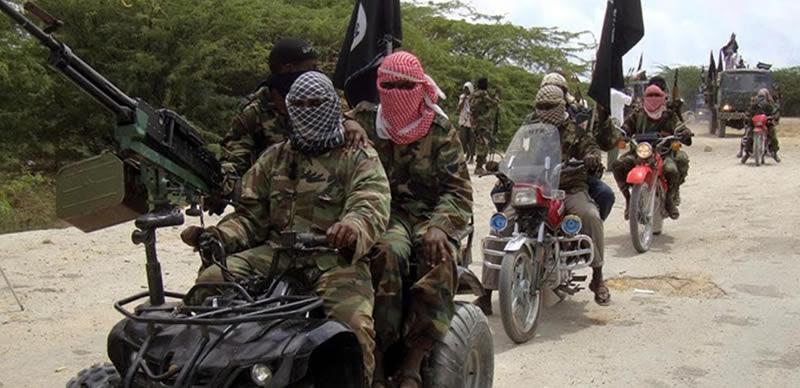The United States government, through its Mission to Nigeria, emphatically condemned the atrocities committed by Boko Haram, reaffirming its commitment to collaborating with Nigeria and regional partners in the fight against terrorism. This condemnation followed controversial allegations by US Congressman Scott Perry that the United States Agency for International Development (USAID) was inadvertently funding Boko Haram and other terrorist organizations. The US Mission’s statement served both to denounce the terrorist group’s actions and to address the concerns raised by the congressman’s accusations, emphasizing the stringent monitoring measures in place to ensure the proper allocation of US aid. The timing of these events coincided with broader discussions surrounding US foreign aid policy, sparked by a temporary suspension of aid initiated by then-President Donald Trump.
Congressman Perry’s accusations, made during a subcommittee hearing, asserted that USAID was channeling nearly $697 million annually to terrorist groups, including Boko Haram, ISIS, and Al-Qaeda. He further claimed these funds were being used to support terrorist training camps, alleging the misuse of taxpayer money to bolster the very organizations the US government is actively combating. This claim quickly gained traction, amplified by the circulation of a video capturing his statements. The congressman’s assertions contributed to an already contentious debate surrounding foreign aid expenditures, fueled by President Trump’s prior decision to temporarily halt aid disbursements. This confluence of events brought the effectiveness and accountability of US foreign aid under intense scrutiny.
The US Mission to Nigeria directly responded to these allegations by highlighting the robust monitoring and evaluation systems implemented to track the flow of US assistance. Their statement emphasized the rigorous procedures in place to ensure that aid reaches its intended recipients, thereby minimizing the risk of funds being diverted to unintended or nefarious purposes. The Mission underscored the US government’s dedication to transparency and accountability in its aid distribution practices, aiming to reassure the public and international partners of the responsible management of US resources. This response aimed to directly counter the narrative presented by Congressman Perry, offering a contrasting perspective on the allocation and oversight of USAID funds.
The US government’s designation of Boko Haram as a Foreign Terrorist Organization (FTO) in 2013 further underscored its unwavering commitment to combating the group’s activities. This designation carries significant legal ramifications, enabling the US government to block the organization’s assets, disrupt its fundraising efforts, prosecute individual members, and restrict their travel to the United States. These measures demonstrate a multi-pronged approach to weakening the terrorist group’s operational capacity and holding its members accountable for their actions. The FTO designation reinforces the seriousness with which the US government views the threat posed by Boko Haram and its commitment to utilizing all available tools to counter its influence.
The controversy surrounding Congressman Perry’s accusations unfolded against the backdrop of President Trump’s 90-day suspension of foreign aid in January 2025. The president justified this decision by citing global instability and the misalignment of certain aid programs with American interests. This move intensified the debate surrounding foreign aid, prompting calls for a comprehensive review of USAID’s funding allocations, particularly those directed towards health programs. The temporary suspension of aid reflected a broader skepticism within certain segments of the US government regarding the efficacy and strategic value of foreign assistance programs.
The confluence of these events—Congressman Perry’s allegations, the US Mission’s response, and President Trump’s aid suspension—highlighted the complex and often contentious nature of foreign aid policy. The debate raised fundamental questions about the balance between providing necessary assistance to vulnerable populations and ensuring accountability in the allocation of taxpayer funds. It also underscored the challenges of operating in complex environments where the risk of aid diversion or misuse remains a persistent concern. The scrutiny surrounding USAID’s activities emphasized the need for transparency, rigorous oversight, and continuous evaluation to maintain public trust and ensure that US foreign aid effectively serves its intended purposes while minimizing the risk of unintended consequences.


